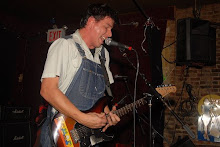

Music and Arts




Edvard Grieg
Piano Concerto
Ivan Moravec, piano
The Philadelphia Orchestra
Christopher Keene, conductor
live broadcast, October 19, 1984
I've no other info about this save that it is Ivan's debut with the Fabulous Philadelphians.
Links for this in comments, as customary; if you enjoy this, I must suggest

something that has given more enjoyment with each listen,
from the Czech recording company Supraphon's
collaboration with Mr. Moravec:
Live In Brussels
He plays the Beethoven Pastoral sonata, Some Chopin mazurki, nocturnes, the Scherzo in B minor and a few of his Brahms lagniappes, always twinkling with a watchmaker's focus and brilliance.
As it is an official release, very reasonably priced and relatively available,
here is the link to see it and buy it if you wish
http://www.supraphon.com/en/catalogue/releases/?item=827
With that, I have no other comment than I love Ivan Moravec.
Guillermo
Jack brought the Grieg concerto to symphonyshare, and I couldn't but share- A thousand thanks Jack!

Gustav Mahler
Symphony No. 6
Russian National Orchestra
Sir Mark Elder, conductor
Live broadcast from Tchaikovsky Concert Hall, Moscow
April 17, 2009
After the choices offered on the StateWork blog so far in Mahler symphonies, the specific performance for the Sixth was presenting a greater challenge. There isn't excessive repetition of pieces here, although admittedly there are 'other' recordings of #s 9 and 3 planned for the near future.
Then a few weeks ago this crossed the speakers at State Work, and so here it is. I really love the care with which the orchestra negotiates the myriad turns and expanses of this work. For example, at 6:47 in the Scherzo there is a molar-rattling slowdown and drag though the mud like no other; the strings aren't shy to dig in throughout the performance, when called for. It brings to mind a Barbirolli rehearsal recording where he goads the low strings into really pushing it near the beginning of a Bruckner 7th, repeatedly. I think what Maestro Elder and the Russian National Orchestra achieve here would make Sir John proud- the affinities between the two conductors are more than just a few.
The cover was made from a "...Mark Elder and the Russian National Orchestra rehearsing at the Moscow State Conservatory named after Pyotr Tchaikovsky" photo by Vladimir Vyatkin, STF

"..Not knowing immediately opens into endless possibilities. When you know, you’re very limited. As Suzuki Roshi says, the beginner’s mind has countless possibilities. The mind of the expert is very small. It shows an unwillingness to really hear anything..."



"...as a filler I've included a dynamite performance of the 1stVC with Leonid Kogan with Leinsdorf & the BSO from 1964..."

Mahler, Gustav
Symphony number 1

Donald Runnicles, conductor
Deutsches Symphonie Orchester Berlin
January 18, 2009
Live broadcast from Berlin Philharmonie, Grosser Saal
If you're new to the music of Gustav Mahler, start here.
If not, there is still more previously unnoticed detail to cull from his first symphony, as Runnicles brings out in a tight, bounding playpen of cacophony from the DSO Berlin.
After running around between a dozen other contenders for a favorite broadcast Mahler 1, this one beat out the pack. Barenboim's East-West youth assault had some great frisson, but so does this and with more focussed string textures to boot. Overall, the clarity of the interacting lines of sound impressed and delighted here; I hope you find as much in this interpretation as I have.









Chopin
Piano Concerto N° 2:
1. Maestoso (14:01)
2. Larghetto (8:25)
3. Allegro vivace (8:39)
Etude op. 25 N° 7 (arr. for cello & piano by Glazunov) (5:31)
Sonata for cello and piano
1. Allegro moderato (16:55)
2. Scherzo. Allegro con brio (5:31)
3. Largo (3:50)
4. Finale. Allegro (7:24)
Pau Casals: Traditional catalan piece for cello & piano (2:54)
Click here for the link, which is on El Corsario's blog "Aires Chilenos"
He also puts the download info in the comments section under the post, in case you don't grok Spanish (either way music is universal)




If you are the composer, performer, performing organization, artist or directly represent the composer, performer, performing organization, or artist of anything posted on this website and would like your material removed please contact me and I will happily oblige.
